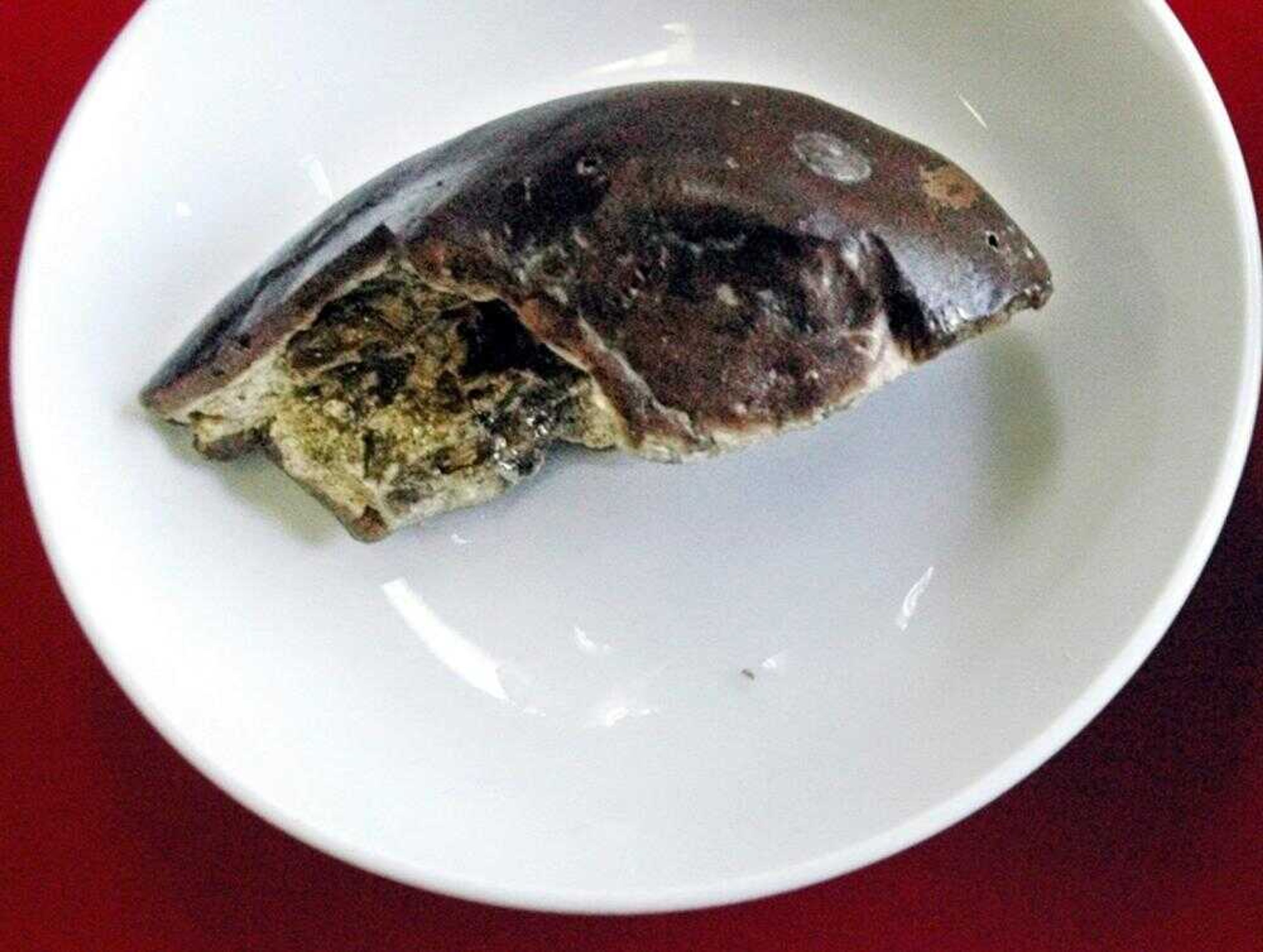Researchers unearth 2,100 year-old melon
TOKYO -- A 2,100-year-old melon with the flesh still on the rind was unearthed in western Japan, apparently preserved underground over the centuries in a vacuum-packed state, an official said Friday. Archaeologists used radiocarbon analysis to estimate the age of the fruit, believed to be the oldest melon found with flesh still on the rind, said Shuji Yamazaki, a local official in the city of Moriyama...
TOKYO -- A 2,100-year-old melon with the flesh still on the rind was unearthed in western Japan, apparently preserved underground over the centuries in a vacuum-packed state, an official said Friday.
Archaeologists used radiocarbon analysis to estimate the age of the fruit, believed to be the oldest melon found with flesh still on the rind, said Shuji Yamazaki, a local official in the city of Moriyama.
Previously, the oldest such find was believed to be remains found in China that date back to the fourth century A.D., according to local media reports.
The melon might have been so well-preserved because it was in a vacuum-packed state in a wet layer below the ground, an environment hostile to microorganisms that might otherwise have broken down the remains, Yamazaki said.
Melon seeds have been often found in archaeological digs around the country, but researchers rarely find the remains of melon flesh, Yamazaki said.
Moriyama is about 200 miles southwest of Tokyo.
Connect with the Southeast Missourian Newsroom:
For corrections to this story or other insights for the editor, click here. To submit a letter to the editor, click here. To learn about the Southeast Missourian’s AI Policy, click here.










